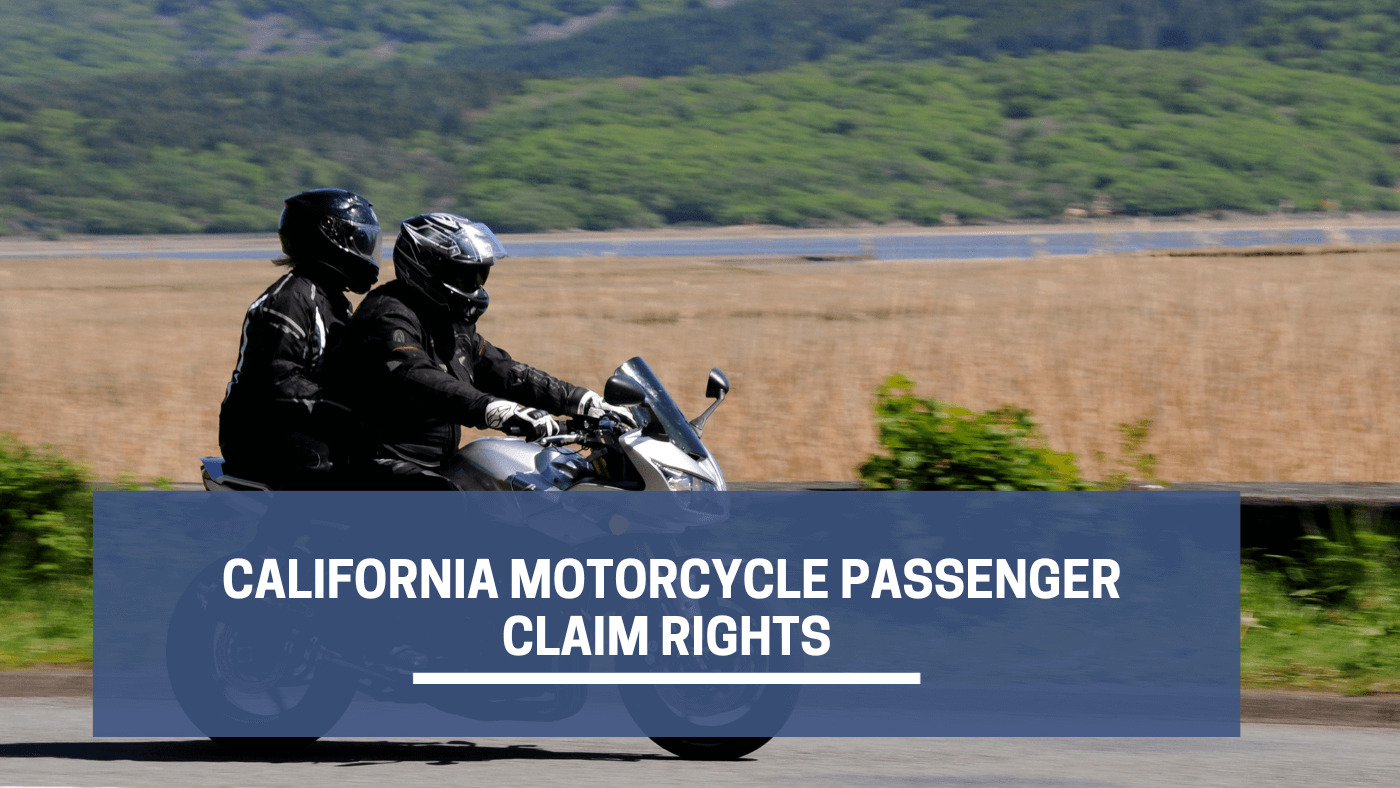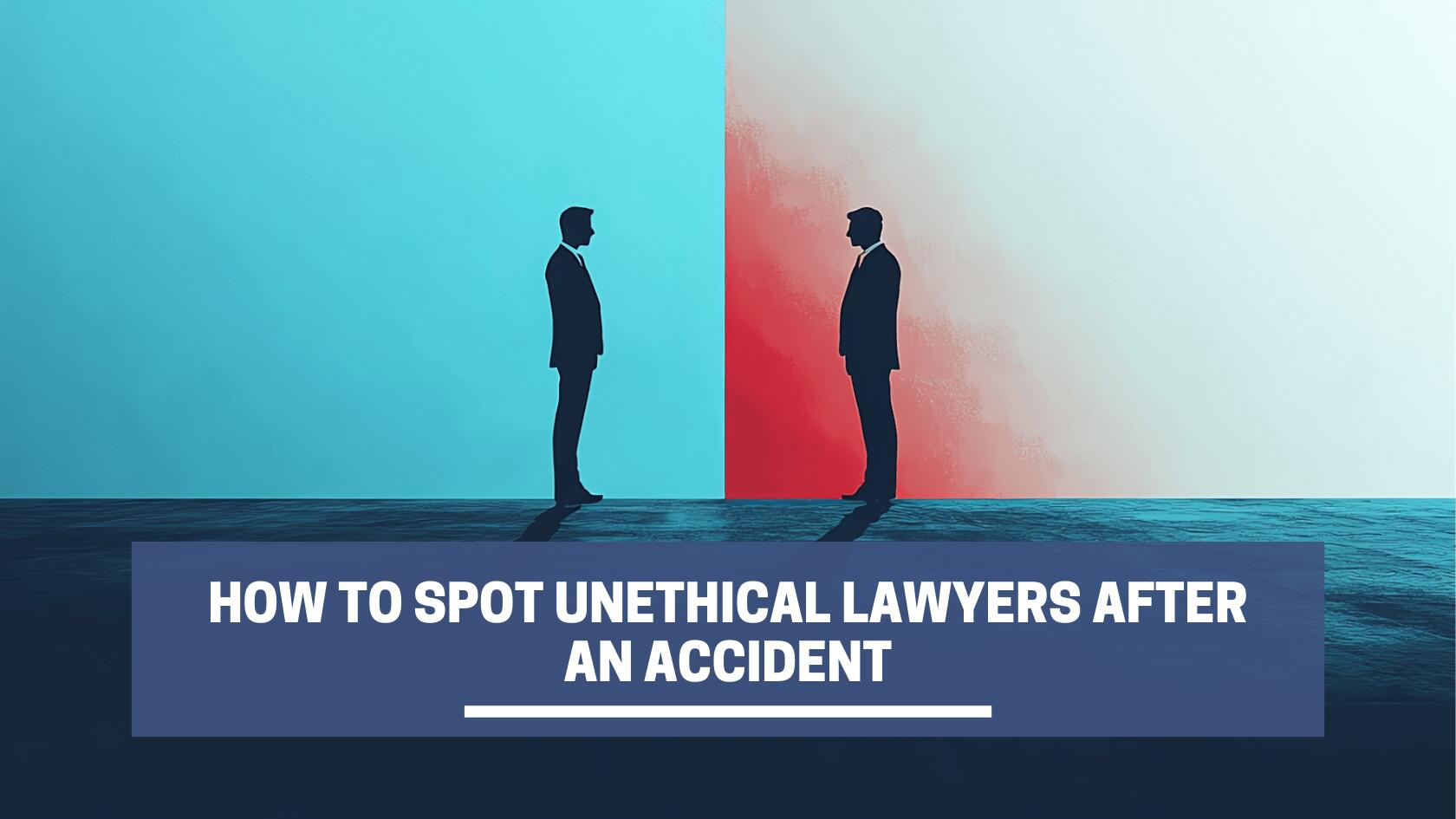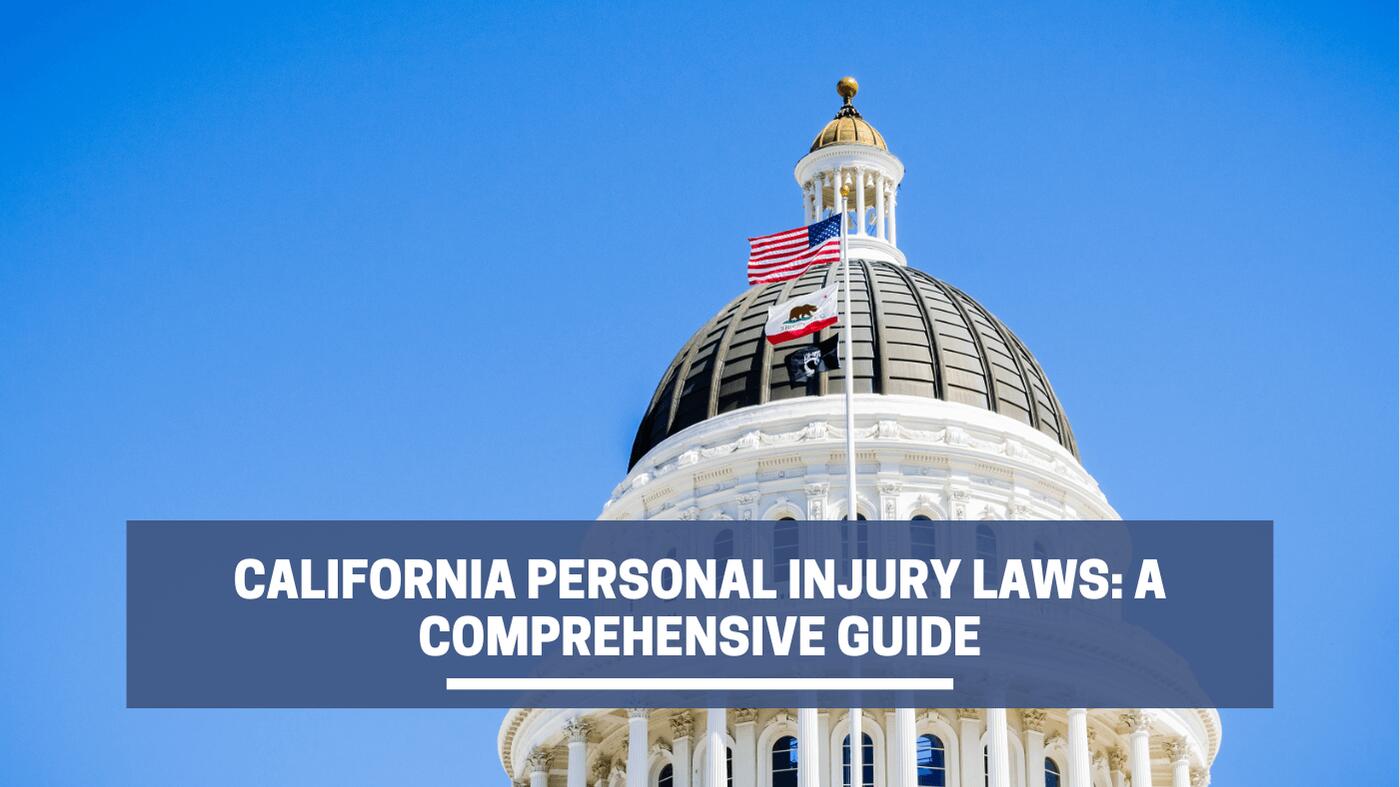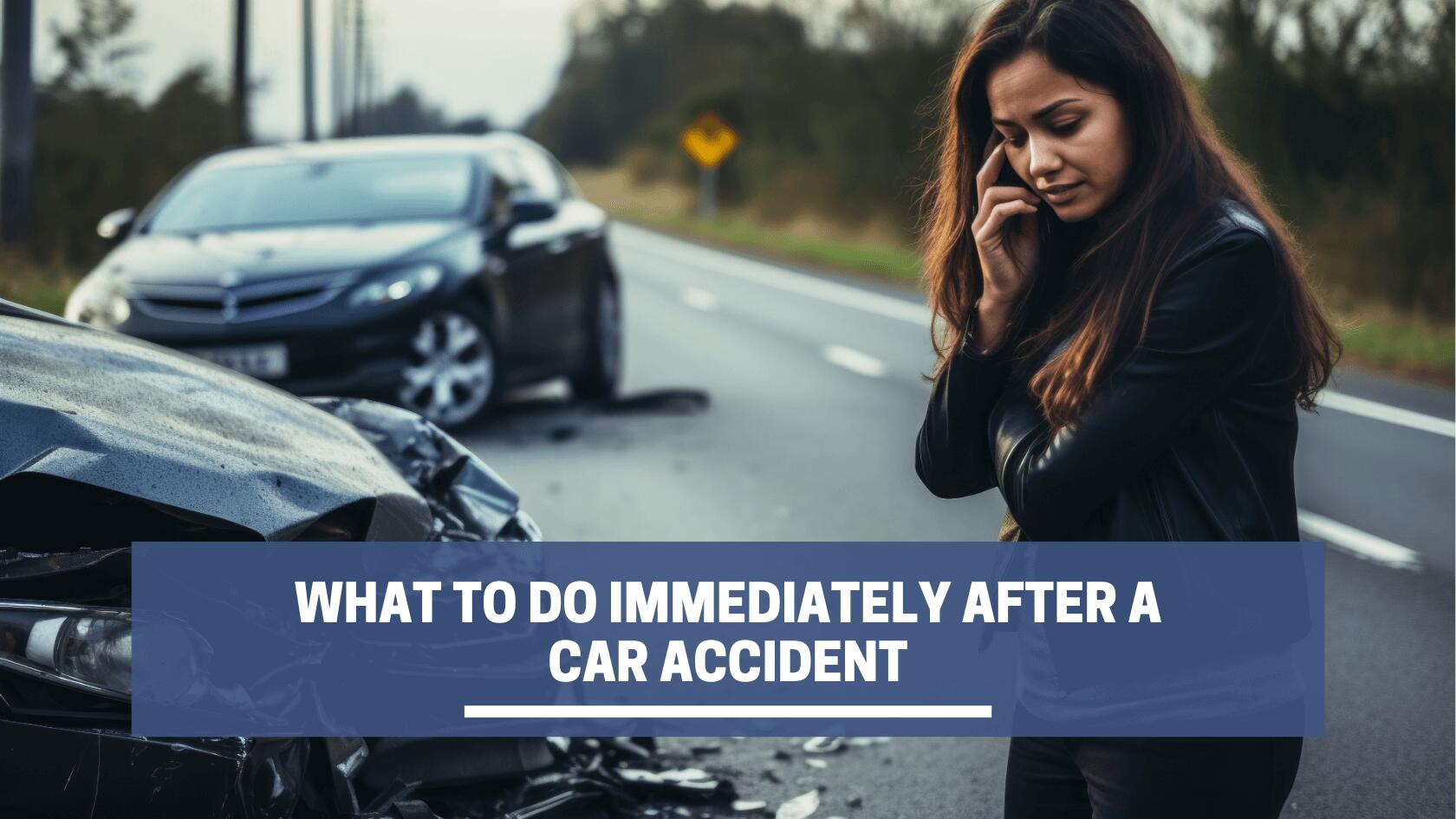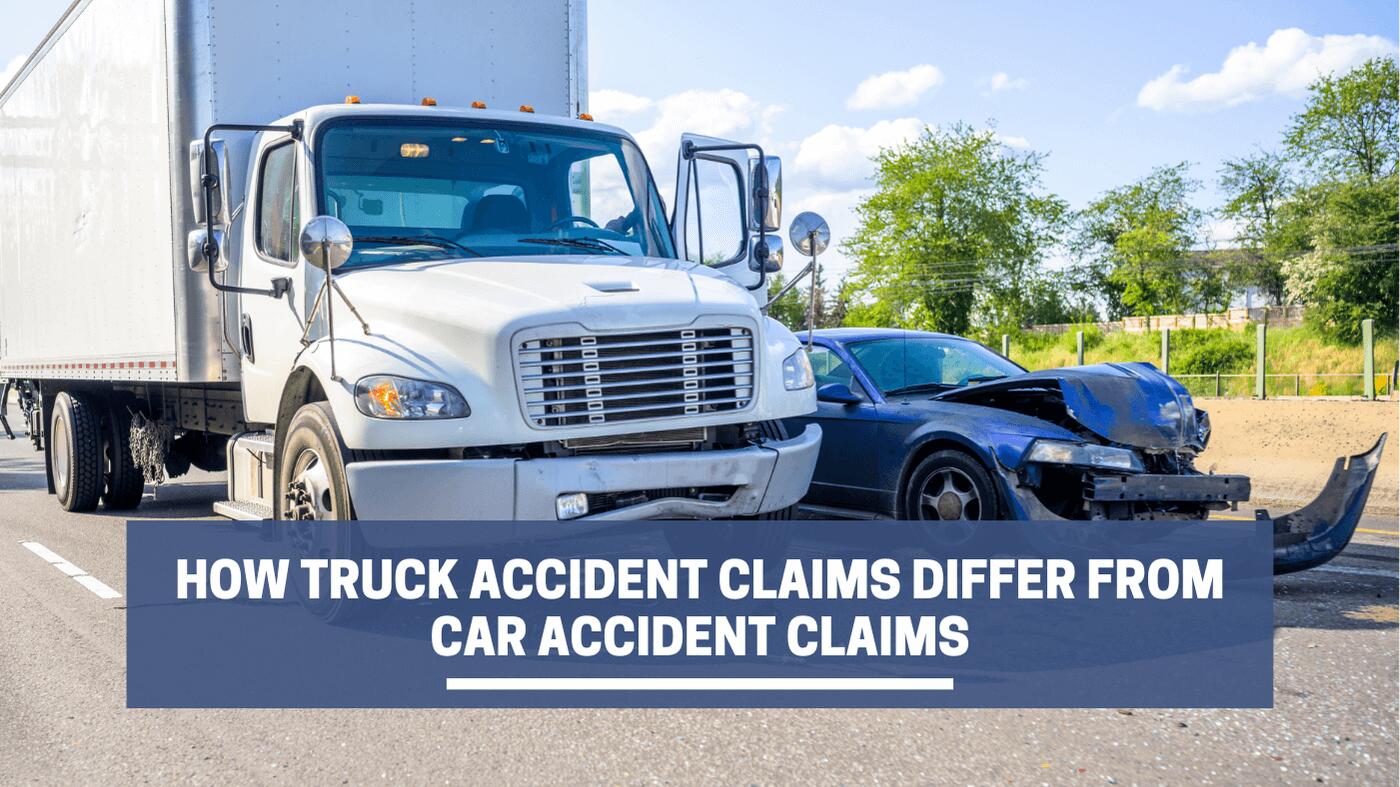Motorcycle accidents have been on the rise in California. Between 2020 and 2021, motorcycle fatalities rose 3%. In 2017, a UC Berkeley study found that 717, or 6%, of those injured on motorcycles were passengers.
If you’ve been injured as a passenger on a motorcycle, you may be feeling overwhelmed and uncertain about your next steps. In California, you have rights that protect you and provide compensation for your injuries.
As a motorcycle passenger, you may be entitled to claim damages from the motorcycle operator, another driver, or the bike manufacturer. Understanding your rights and responsibilities can help you file a motorcycle injury claim to receive a fair settlement for your injuries.
Your Rights and Responsibilities as a Motorcycle Passenger in California
Riding as a passenger on a motorcycle in the Golden State means you have rights and responsibilities under California motorcycle passenger laws. Understanding these rules is crucial for your safety and knowing what to do in case of an accident.
Here’s a breakdown of what you’re entitled to and what’s expected of you when riding a motorcycle:
Your Rights:
- Right to compensation. If you’re injured while riding as a passenger, you can seek financial compensation for your medical expenses, lost income, pain and suffering, and other related damages.
- Right to file a claim. California law allows you to pursue a claim against the party responsible for your injuries. This can include an insurance claim or motorcycle accident lawsuit against one or more parties like the motorcycle driver or another motorist.
- Right to legal representation. You have the right to consult with and hire a California motorcycle accident attorney. Your attorney can help you accurately assess your damages, file the appropriate claim, and negotiate a fair settlement.
- Right to information. You have the right to obtain all relevant accident reports, medical records, and other evidence to support your claim. This can include traffic camera footage, GPS data from other vehicles involved, and witness testimony.
Your Responsibilities:
- Use of a helmet. When carrying a passenger on a motorcycle, both riders and passengers must wear a helmet approved by the U.S. Department of Transportation.
- Hold onto designated areas. Passengers must hold onto designated handholds on the motorcycle or securely around the driver’s waist for stability when riding.
- Footrests. It is illegal for a motorcycle driver to carry a passenger unless the motorcycle is equipped with a securely fastened seat at the rear of the driver and provided with footrests. Passengers must keep their feet on these footrests whenever the motorcycle is in motion.
- Act safely and responsibly. Passengers must behave in a way that lets the driver focus on the road. This means avoiding sudden moves or engaging in behaviors that distract driver attention and increase the risk of an accident.
Who is Liable for Your Injuries in a Crash?
Determining who is liable for your injuries in a motorcycle crash depends on the specifics of the accident. Establishing liability is critical for pursuing compensation for medical bills, property damage, and lost wages.
Responsible parties can include:
- Motorcycle operator. When carrying a passenger on a motorcycle, the driver assumes responsibility for their well-being. If the motorcycle driver was negligent or reckless, such as speeding or driving under the influence, they could be held liable for your injuries.
- Another vehicle’s driver. If another motorist caused the crash, such as by running a red light or driving while distracted, they may be liable for your injuries.
- Manufacturer of the motorcycle or parts. If the accident was caused by a defective part, such as faulty brakes or a malfunctioning steering system, the manufacturer could be held accountable.
- Local or state government. Poor road conditions, like potholes or inadequate signage, could mean the government entity responsible for maintaining the roads is liable.
- Property owner. If the accident happened because of obstacles or conditions on private property, like inadequate lighting or unmarked speed bumps, the property owner may be responsible.
Considerations for Motorcycle Passenger Accident Claims
If you’ve been injured as a passenger in a motorcycle accident in California, you may be wondering how to proceed with a compensation claim. A skilled motorcycle accident attorney can walk you through the following considerations for seeking a settlement to help you recover from your injuries:
- Relationship with the driver. When the driver is a close friend, family member, or partner, you might hesitate to file a claim. However, it’s usually the driver’s insurance that will cover your injuries, so you’re not directly affecting their financial situation. The focus is on getting you the compensation you need for your medical bills, lost wages, and other costs.
- Proving negligence. Winning your claim means proving that someone was careless or reckless. For example, if the driver was texting while driving or ignoring traffic signs, it could be considered negligent. Gathering compelling evidence, like accident reports and witness testimonials, is crucial for building a strong case.
- Insurance coverages in California. Liability insurance is mandatory for all drivers in California. Minimum requirements are $15,000 for injury or death to one person and $30,000 for injury or death to multiple people, and many drivers carry higher limits. You can seek compensation up to the at-fault party’s liability limits based on your damages.
- Uninsured and underinsured coverage. This optional insurance can help if the driver responsible for the accident doesn’t have adequate insurance to cover your damages. If you have uninsured or underinsured motorist coverage, you can receive compensation through your own policy.
- Statute of limitations. In California, you generally have two years from the accident date to file a personal injury claim. If you miss this deadline, you could lose your right to pursue any compensation.
Steps for Filing Your Motorcycle Injury Claim in California
Handling the aftermath of a motorcycle accident in California can be overwhelming, especially when it comes to filing an injury claim. The following steps can help you through this process, making it easier to secure the compensation you need for recovery:
- Seek immediate medical attention. Get medical care right away. This ensures you receive treatment and provides documentation of your injuries, which can be crucial to assessing damages and proving your claim.
- Collect evidence at the scene. If possible, take pictures of the accident scene, your injuries, environmental factors like skid marks or street signs, and property damage. Collect contact information from witnesses and note down the details of the accident.
- File a police report. Contact local authorities to file an official report, even if the accident seems minor. This report can be an essential piece of evidence later on. It’s also required by law within 10 days if someone is injured.
- Review insurance policies. Understand the types of insurance involved, including the driver’s liability coverage and any of your own policies that might be applicable, such as uninsured or underinsured motorist coverage.
- Consult an attorney. Having legal representation can help you maximize your settlement after a crash. An attorney can guide you through every step of the claim, helping you gather evidence and negotiate with insurance companies.
- Submit your claim. Once you’ve gathered all the necessary information and consulted with your attorney, you must formally submit your claim to the relevant insurance companies.
- Negotiate and settle or go to court. If the insurance company offers a settlement, your attorney will help you determine if it’s fair. If not, you can take your case to court to seek a damage award from a jury.
Protect Your Rights as an Injured Motorcycle Passenger
Understanding your rights and navigating the legal process effectively is critical to securing fair compensation after a motorcycle accident. By being informed and taking the right steps, you can focus on what matters most: your recovery. Consulting an experienced attorney can help guide you through the claims process so you get the financial support you need.







